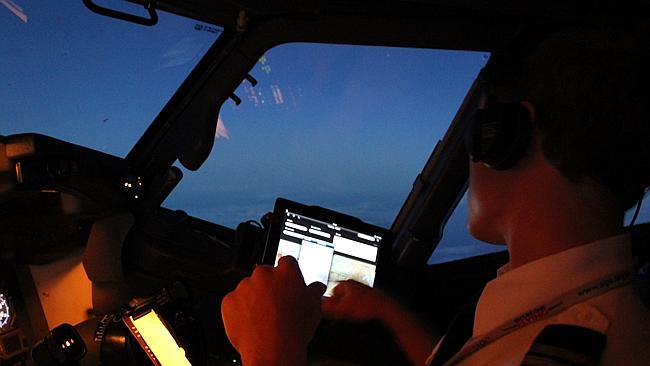Plane navigation system vulnerable to hackers
WHEN it comes to flying, nothing seems to be taken more seriously than security. But a new study has revealed that there is one huge area that is being over looked. Hackers.

WHEN it comes to flying, nothing seems to be taken more seriously than security. But a new study has revealed that there is one huge area that is being over looked. Hackers.
In-flight tablet apps have become increasingly popular for both hobby pilots and commercial pilots. They function as live displays for air traffic, weather and documents like flight checklists.
The study, conducted by researchers at the University of California analysed the security of several of the most popular apps for pilots and found several big security holes within them.
Originally these apps were just used by hobby pilots, due to their low cost compared to that of traditional navigation devices. However, airlines like Qantas and American Airlines are now using iPad apps in similar ways.
The vulnerability itself is to do with how the plane and air traffic control communicate with each other, using unencrypted and unauthenticated ADS-B signals.
The danger lies in these signals, where hackers can send data to the cockpit iPad by intercepting the signal and “spoofing” it to make the app think the data is from an authentic source. If successful, the hacker could present the pilot with air traffic or weather information.
While more popular commercial apps that are used by commercial airlines will need to be hacked when in use by someone relatively close, other apps like Garmin Pilot and WingX Pro7 have a bigger hole.
These apps, used primarily by hobby pilots are through insecure means, which allowed the researchers to load malicious code onto the apps while they were updating without alerting the user.
Although these apps present vulnerability, one pilot told news.com.au that he thought that even though they do use these apps, they aren’t their only source of navigation.
“While the iPads have been a godsend in eliminating paper work, when it comes to everything else, we usually still cross check,” he said.



